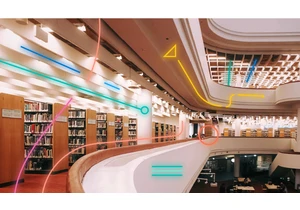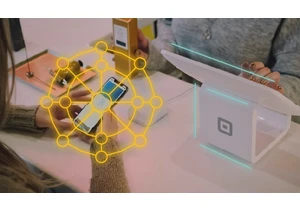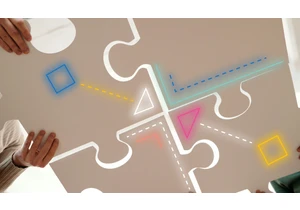Finding the right career is often as simple as knowing it’s out there. Our Elastic Career stories showcase the amazing people in amazing roles here at Elastic. To celebrate Women's History Month, we sat down to talk with Daliya Spasova about her journey from being a competitive swimmer to her current role as a specialist for Community Programs. When did you start with Elastic?A little over two years ago. I’m currently based in London after relocating from Amsterdam. Elastic helped me with that move, which I’m super thankful for. What do you do outside of work?I do a lot of sports but I’ve also recently found a passion for cooking. Me and my boyfriend have been experimenting with all kinds of recipes. I’m also a big wine lover and am trying to start my own collection. We hike a lot — we have a dog so it’s good to do long walks during the day. What did you want to be when you were growing up?I really wanted to be a professional swimmer. I competed until I was in college. Can you tell us a bit about your swimming journey?My grandad took me to my first swimming practice when I was just four years old. I fell in love with the water, and I pretty much ended up going to the pool every day from then on. I think my first competition was when I was seven. I started winning local and national competitions at an early age. Around the age of 15 I made the national team of Bulgaria. It was very challenging at the time because I was studying at the best school for English in Bulgaria. All the hard work paid off though — I received a full scholarship from the University of Cincinnati in Ohio, where I competed for a year, followed by another year at Pfeiffer University in North Carolina. Once I was in college I began to realize that I wanted to do different things with my life. Are you still involved in swimming in any way?I only swim for leisure these days. I stopped swimming competitively when I was 22 years old. How did you move from your swimming career into what you’re doing now?I studied sports management during my first year in university before moving into international business administration in my second year. I was interested in working in numerous different fields — from finance to human resources and recruiting. When I got my first job working in project and program management, though, I ended up in the engineering department at Uber. That’s where I fell in love with the role. How did you end up at Elastic?So, I had a great job at Uber. I wasn’t really looking for new work, but a colleague of mine knew about Elastic and saw a role here that matched my skill set and personality. When I was offered the job here at Elastic, I think the biggest selling point for me was that you could construct your own schedule. You don’t have to work nine to five, which is great, because as an athlete I have a very hard time sitting eight hours a day behind a desk. I like to be up and moving around! Space, Time allows me to think about myself and my well being first, listen to my body and my mind and prioritise when I need to swim and dedicate time to that. When I do that, I feel so much better, relaxed, and more motivated to work. So the Source Code has been really important to you?When I first started at Elastic and heard about the Source Code, I wasn’t really sure if I believed it. I’d been promised that kind of freedom in my work before, but it never really manifested. When I actually saw it in practice, I was really impressed. To be able to stop work for dinner with my partner, then start up again later without anyone hassling me — truly being the master of my schedule — is a big inspiration. You’re part of the Elastic community team. Can you tell us a bit about your role?From program and project management, to event management, to strategizing on a regional and global scale, the Community team is responsible for raising awareness about the Elastic Stack around the world. One of the ways we increase awareness and engagement amongst practitioners is through events. Part of my job is to make sure we have the right cadence of events filled with interesting and engaging content. We are also responsible for managing the Elastic user groups worldwide and helping build relationships with our users. As a community programs specialist, my work varies daily. This variety is one reason why I love my job, and why I find it so interesting. One of the other things that I love about my job is that I get to form personal relationships with our users. It’s really satisfying. How has that changed since the beginning of the pandemic?When COVID-19 hit, we had to quickly change our strategy and come up with a plan to continue our work virtually. There were so many events already planned that we had also arranged to travel for. So there was a rapid change there. We came up with a strategy, and created a lot of new content to ensure that as we took things virtual the events felt fresh. Though everything is virtual now, my team puts a lot of effort into building relationships with our users and staying connected with them. This pandemic proved that myself and my whole team are resilient and creative, we are adapting every day to this new reality by providing fresh and engaging experiences for our communities around the world. We recently had our first global Elastic Community Conference, which was a huge success. All talks can be re-watched on our Community YouTube Channel. You’re working with a lot of different time zones. Does that ever make it hard to turn off?When I first started in the role I wanted to be online all the time because I was enjoying the learning curve of the job and enjoyed talking to my teammates. Though I still enjoy my job just as much as the early days, I’ve become more comfortable in the role, and know what’s expected of me. Now that I’ve gotten to know Elastic and how real the culture is, it’s easier to turn off. I know my colleagues are genuine and want what’s best for me, which includes stepping away on occasion. I try to stay away from the laptop on the weekends and disconnect as much as possible. What are some of the best lessons you’ve learned so far in your career?Well, I think one thing I’ve learned is that you’ll be the most productive if you feel comfortable, free, and empowered in your role. The second thing I’ve learned is that while working hard and being ambitious is great, it’s also important to find enough time to enrich your personal life. Being happy outside of work will ultimately help you be happier at work as well. Finally, and this might come from my competitive years, but it’s important to be a true team player. Take interest in your colleagues' lives. We spend a lot of our waking hours working, and these relationships are important. What are some things from competitive swimming that carried over into the business world?Swimming, and I think a lot of sports, give you a lot of discipline. For me, swimming made me organized and punctual, and gave me a particular sensitivity to detail. Most sports, and swimming in particular, are extremely competitive. The same goes for working in tech — I believe a lot of us are competing for the best and most innovative ideas daily. Do you feel that swimming and sports in any way led you into working in Community? Is there a connection?Working in a community, and being part of the community team, there is a strong sense of belonging. We all know each other well and give each other support. When I was in a competitive sport, there was always a sense of family, and that’s something I also feel here. Any advice you would give to your younger self at the start of your career?Be more patient with yourself. Allow yourself to make mistakes and be okay with it. Interested in joining Elastic? We’re hiring. Check out our teams and find the right career for you! Want to read more about life at Elastic? Read more on our blog!
https://www.elastic.co/culture-elastic-career-stories-daliya-spasova-on-competitive-precision
Login to add comment
Other posts in this group







